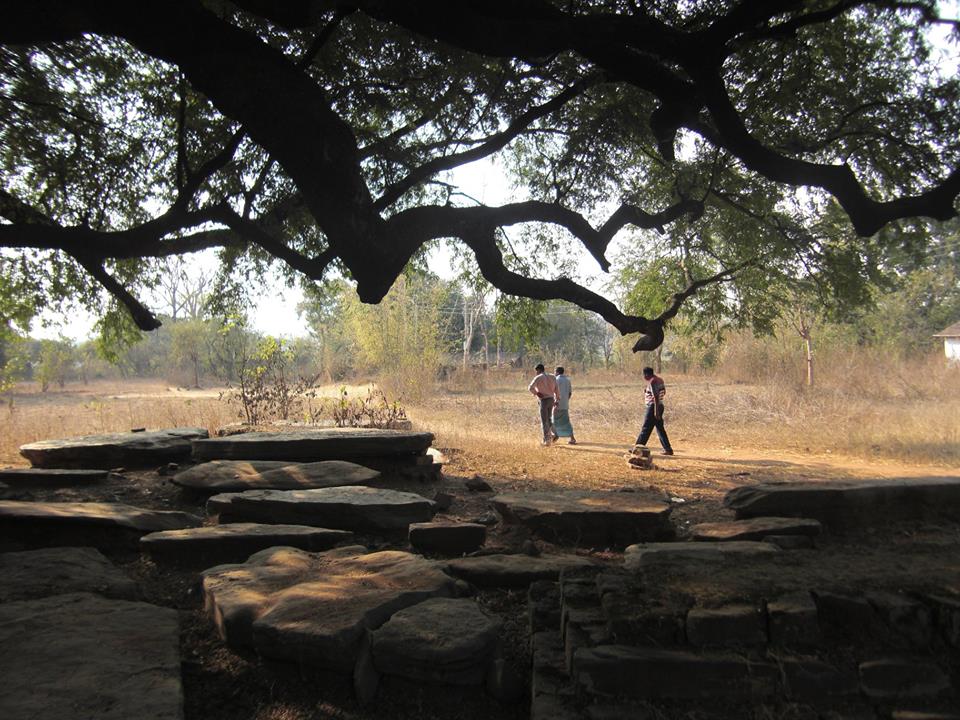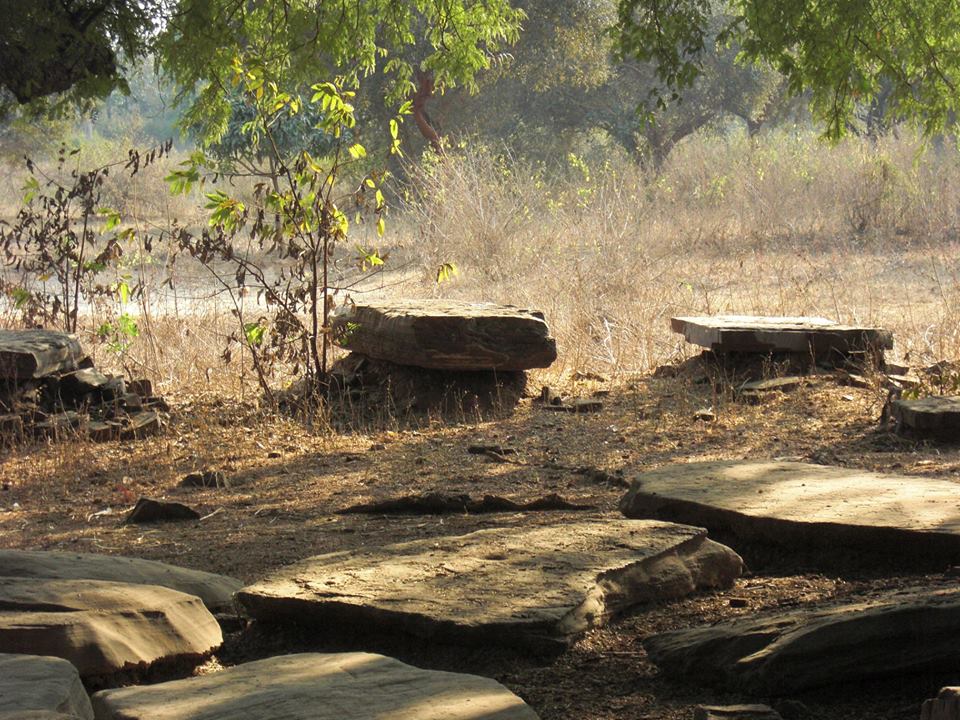THE FEELINGS OF THE HOS
A funeral song from 1840

Apart from that remark by a social activist that the tribals of Jharkhand have “stone age values”, I have never read something more insensitive than that the HOS of Singhbhum have “no words of love and endearment”. This is what the assistant commissioner in Chaibasa Dr. Hayes told a British visitor in 1868. Still, Hayes was not an enemy of the HOS. He spoke HO. His house was open to visitors on market days. Though the visitors did not want his rice, they took his sweets. Hayes could even drum with them and occasionally joined their dances. No terms of endearment? I think the assistant commissioner missed out on some crucial experiences.
But hush, there are people listening. Don’t give them ideas.
So it was up to a more sensitive observer to set the record straight. Hayes’ boss, the more easy going Commissioner Edward Tuite Dalton, came back to the supposed emotional limitations of the HO language in his 1872 “Descriptive Ethnology of Bengal”. Dalton spoke no HO, so he depended on what others, like Hayes, told him. The HOS, he wrote even more bafflingly, had “no terms . . . to express the higher emotions”. Luckily, while writing, Dalton sensed that something was clearly wrong, And immediately he quipped in, “but they feel them all the same”. Here he referred to what he saw and felt at a HO burial, “a reality in their sadness”. HOS, like Mundas, showed “a greater reverence and affection for the deceased than the hurried burial out of our sight that we [British] ourselves adopt”.
He could have known. Thirty years before him, Tickell, like Dalton, had an ear for HO poetry. And he knew HO. Still, he said he had trouble translating, not the words, but the feelings they contained. HOS sung their poetry. Therefore, “words which would be common place, in the smooth mellifluous accents of their dialect sound interesting, and often beautiful”. Obviously Tickell feared that the mere words were not enough.
I think Tickell actually feared that his audience, brought up on reading, not singing, romantic poets like Wordsworth, would not appreciate the more direct words of the HO songs. In the end, Tickell only gave the burial song. Thereby he underpinned in words, what thirty years later Dalton was to feel by merely seeing and hearing. For reasons of space I cannot give the entire song. Once the HOS start singing, they do not like to stop. But I will give enough for the readers to get a good impression. And for the history buffs among us: note that this is 1840. This is the first HO poetry ever put on paper.
This song was sung after the burning of the body (and before the burial of the bones). The object was to induce the spirit of the departed to return to the house and to announce his return by a sign such as some ashes left on the floor, some disturbance of the rice, some drops of water on the ground. It was sung at the burial ground “in a plaintive wild strain”.

Oáté hoojoomèn
Come back
ফিরে এসো
K’alleeng erankedmia
K’alleeng enkakedmia
Hoojoorooamén
Booqité ‘leengposakeamia assooladmia
Essoodinmidté leeng tykena
Miadoaré leen tykena;
Na da alum bageea!
We have never scolded you,
Never wronged you;
Come to us back.
We have ever loved and cherished you,
And have lived long together
Under the same roof;
Desert it not now!
বলো, কখনো দিয়েছি কি গালি?
করেছি অযতন?
ফিরে এসো, ফিরে এসো।
ভালই তো ছিলে এতদিন ;
আদরে,পরশে, একছাদে।
এখনই কি চলে যেতে হয়?
Gama needa ko
Rabang rabang poio dinko dâra
Nendre do alum honorbýa.
Atarked jang japarré alum tingoona;
Hoojoo rooámen
Hesa soobaré umdo ka tý dýa
Gama hoojooredo
Rabang hoioré
sarjum do Boogité ka doimiai.
The rainy nights
And the cold blowing days, are coming on;
Do not wander here.
Do not stand by the burned ashes;
Come to us again!
You cannot find shelter under the peepul.
When the rain comes down,
The saul [tree] will not shield you from the cold bitter wind.
বৃষ্টির রাত আছে,
আছে হাড়হিম হাওয়া।
তবু তুমি হেঁটে যাবে ছাইগাদা ধরে?
চলে এসো ঘরে।
পিপুলের গাছ দেবে জলের আড়াল?
শাল দেবে হিমের নিস্তার?
ফিরে এসো, এসো ফিরে।
Oáté hoojoomèn
Umnangenté oa do boogikidallé! Alleeng do
Moonooite heating metanna, alleeng dóleeng minna,
Umnangente mandeeleeng doikia,
dahleeng-doikia;
Hoojoomén oatehoojoomén
Dooïrimén alleeng tar!
Come to your home!
It is swept for you, and clean; and we
Are there who loved you ever;
And there is rice put for you
and water.
Come home, come home.
Come to us again!
দেখো নিকিয়ে রেখেছি ঘরদোর,
তোমারই জন্যে শুধু।
সাজিয়ে দিয়েছি ভাত আর জল।
ভাইবোন বসে আছি ঘিরে।
ফিরে এসো ঘরে, এসো ফিরে।
Posted on Facebook, 21 January 2018. The Bengali translation is by Indranil Majumder, for which my deep gratitude.
